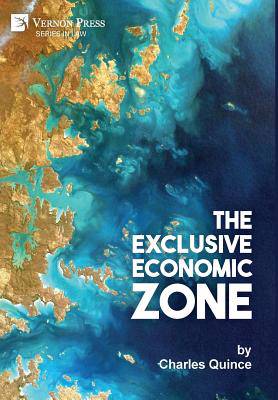
- Afhalen na 1 uur in een winkel met voorraad
- Gratis thuislevering in België vanaf € 30
- Ruim aanbod met 7 miljoen producten
- Afhalen na 1 uur in een winkel met voorraad
- Gratis thuislevering in België vanaf € 30
- Ruim aanbod met 7 miljoen producten
Omschrijving
Traditionally, the law of the sea was divided into the territorial sea and the high seas which accounted for the application of different rules under different circumstances. Concerning the territorial sea, the coastal state enjoys full sovereignty to the right of innocent passage, while under the high seas rules all countries enjoy multifaceted uses of the sea qualified only by the limitations imposed by international law. The development of the exclusive economic zone ended this traditional dualism and ushered in guidelines that are embodied within the text of the LOS Convention.
The Exclusive Economic Zone presents to academia and the general reading public a comprehensive study of the EEZ concept as it relates to the LOS Convention and state practice. The Exclusive Economic Zone shows that even through coastal states have the right to develop a 200 miles EEZ and that this right is an integral part of contemporary international relations, it is also true that the EEZ concept is shrouded in legal ambiguities. Using qualitative and inductive methods, the scholarship draws on treaties, official proclamations, government archives, and scholarly works that are germane to the development of the EEZ. Students, scholars, and members of the general public with an interest in international law will find that The Exclusive Economic Zone deepens their understanding of the evolution of the EEZ concept.
Specificaties
Betrokkenen
- Auteur(s):
- Uitgeverij:
Inhoud
- Aantal bladzijden:
- 302
- Taal:
- Engels
- Reeks:
Eigenschappen
- Productcode (EAN):
- 9781622735358
- Verschijningsdatum:
- 15/02/2019
- Uitvoering:
- Hardcover
- Formaat:
- Genaaid
- Afmetingen:
- 152 mm x 229 mm
- Gewicht:
- 557 g

Alleen bij Standaard Boekhandel
Beoordelingen
We publiceren alleen reviews die voldoen aan de voorwaarden voor reviews. Bekijk onze voorwaarden voor reviews.











